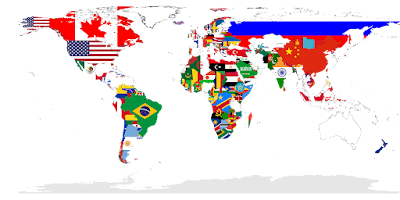When it comes to translation of highly technical documents (user
manuals, SDS’s, demonstration video transcripts, etc.), there is a lot at
stake. Incorrect translations can result in misuse of equipment which in turn can
lead to unexpected costs of repair or in worst cases, injury. Alternatively, client’s
may lose respect for your brand if they are marketed translations that are
awkward and seem like they were completed by google translate.
With all these potential risks, it pays to ensure that
technical documents are translated correctly. How does PLG go about reducing
the risk of these unexpected and unwanted consequences?
One way is through procedures. Usage of glossaries, translation memories,
mechanical reviews and more are effective tools in the battle against mistakes.
But while these are important, your first line of defense is of course the
translator.
Translators need to be detail oriented and hard working.
They need to be responsive and dedicated to professional development. But there
are two qualities that PLG looks for in translators above all else. They need
to be native speakers and subject matter experts.
Read more about PLG’s ISO 17100 certified procedures here.
Technical Translators Must Be Native Speakers
Translating word for word is not enough when it comes to
technical translations. Nuances in language are developed at every level from
countries to municipalities. Someone speaking Spanish in Spain and someone
speaking Spanish in Mexico may use completely different vocabulary to describe
the same thing or concept. You would never translate marketing material
destined for America using a Scottish lens.
Depending on your target audience, it is imperative that the
translator assigned to your project is a native speaker of that region. That
way, they can take advantage of their life experience to make sure that your
translations not only are accurate, but also reflect the dialect and slang of
the region. Your documents will effectively sound as though they were
originally written in your target audience’s native language.
This important detail not only reduces risk of
misinterpretation, but also protects your company’s image abroad. Imagine
purchasing an expensive piece of equipment, opening the user manual, and
discovering that the English was written so poorly that much of it is not
understandable. Your loss of respect or trust in the product is how potential
client’s may feel about your documents if you do not have them translated by a
native speaker.
Learn more about PLG’s language capabilities here.
Technical Translators Must Have Subject Matter Expertise
The second, equally important quality we require from our
translators when assigning them to projects is relevant subject matter
expertise. You would not want a translator that only has experience with legal
documents translate your machinery user manuals or vice versa.
When PLG assigns translators to projects, we require that
they have at least 2 years of experience translating similar documents. Given
the specific services our clients perform, it is difficult to find a expert in
their exact subject area that has a strong enough grasp of both languages to
handle translation. That being said, pairing translators that have experience
in the industry with our QA procedures, extensive research, and tools like
translation memory and glossaries ensures that your documents will be
translated correctly.
Due to their experience, they will have knowledge of the
industry specific terminology in the language of your target audience. Usage of incorrect terms can lead to rework,
an expensive, unwanted consequence of using an inexperienced translator. If
native speaking clients or staff find issues with your translation, they will
need to be resubmitted and edited. The best way to mitigate this cost is to put
in effort in the beginning during translator selection to ensure that
translator working with your materials has experience in the industry and with
similar projects.
Additionally, their experience not only decreases the risk
of error, but also decreases turnaround times. A knowledgeable translator will
not require additional research. Less instances of confusion will allow PLG to
translate faster and accommodate more stringent deadlines.
Learn more about PLG here.
Technical Translations Require Expertise and Experience
Nothing is more important than accuracy when it comes to
highly technical translation. Consequences of error range from expensive rework
to injury. For this reason, we extensively vet our technical translators at
PLG. Our top two requirements are that translators are native speakers and that
they have subject matter expertise. By assigning responsibility to the correct
translator from the outset, we ensure your translations are accurate and
delivered on time.
Learn more about PLG’s technical translation services here.



No comments:
Post a Comment